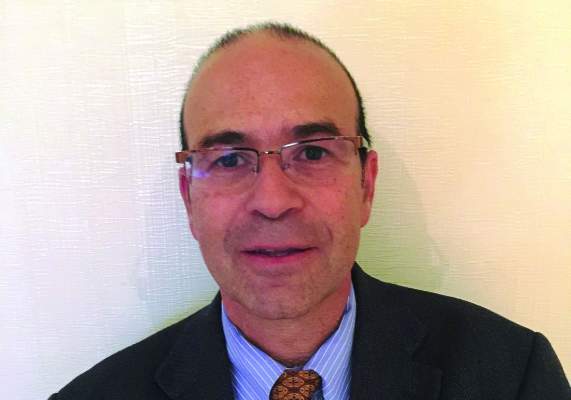FROM GASTROENTEROLOGY
Patients with diarrhea-predominant irritable bowel syndrome (IBS-D) who responded to rifaximin but relapsed after completing treatment were significantly more likely to respond to a second course of the antibiotic than to placebo, according to a report in the December issue of Gastroenterology (2016 Aug 5. doi: 10.1053/j.gastro.2016.08.003).
A total of 38% of patients who received a second course of rifaximin met the primary endpoint in the randomized double-blinded trial, compared with 31.5% of the placebo group (P = .03), Dr. Anthony Lembo of Beth Israel Deaconess Medical Center, Boston, and his associates wrote in Gastroenterology. “Although this study had a positive outcome, questions remain regarding the role of nonsystemic antibiotics in the long term, particularly when patients with IBS-D may require years of symptom management,” they added. “Further research is needed to better understand the treatment algorithm in patients who may lose responsiveness to rifaximin.”
Rifaximin (Xifaxan) has been approved in the United States for treating IBS-D since 2015. The agent is an oral, minimally absorbed, broad-spectrum antibiotic that targets the gastrointestinal tract and has rarely been linked to “clinically relevant” antibiotic resistance, the researchers said. However, pivotal IBS-D trials had not investigated the durability of response to rifaximin or the efficacy and safety of repeat treatment, they noted. Therefore, they followed 1,074 patients with IBS-D who had responded to an open-label 2-week course of rifaximin dosed orally at 550 mg three times daily. By definition, these responders had met a combined primary endpoint that included at least a 30% decrease in abdominal pain and at least a 50% decrease in the frequency of loose stools during at least 2 of 4 weeks of follow-up.
In all, 692 (64%) responders relapsed up to 18 weeks after finishing the first rifaximin course, the investigators said. They randomly assigned 636 of these relapsers to double-blinded treatment with either placebo or a second course of rifaximin. In all, 125 of 328 patients (38.1%) in the rifaximin group again met the combined primary endpoint, compared with 97 of 308 patients (31.5%) in the placebo group (P = .03). Repeat rifaximin treatment also significantly outperformed placebo in terms of the individual abdominal pain endpoint (51% versus 42%, respectively; P = .02), but not the stool consistency endpoint (52% versus 50%).
“Adverse event rates were low and similar between groups,” the researchers said. Patients who received a second course of rifaximin most commonly developed nausea (3.7%), upper respiratory infection (3.7%), urinary tract infection (3.4%), and nasopharyngitis (3.0%). Four patients (1%) in each treatment group developed serious adverse events, none of which were deemed treatment related. One patient developed Clostridium difficile colitis 37 days after completing the second course of rifaximin. However, this patient had a past history of C. difficile infection, had tested negative for C. difficile toxins A and B at enrollment, and had completed a 10-day course of cefdinir for a urinary tract infection immediately before developing C. difficile colitis.
Salix Pharmaceuticals makes rifaximin and funded the study. Dr. Lembo and his coinvestigators disclosed ties to Salix.




